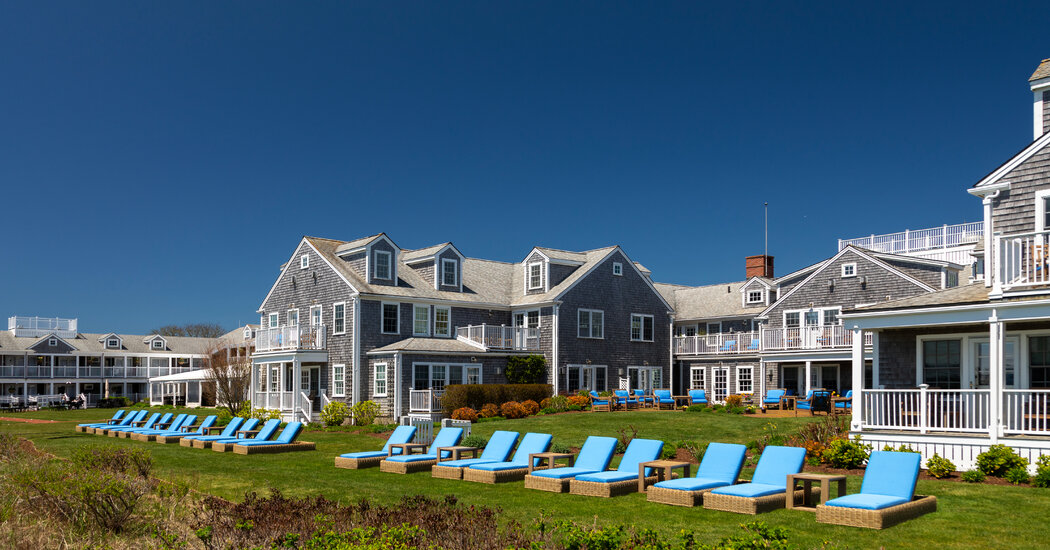In the summer of 1974, I was working as a waiter at the White Elephant, the grande dame of Nantucket hotels, a rambling gray-shingled pile that sits right on the island’s harbor. One muggy August night, I sent the six lobster dinners ordered by Francis Sargent, the governor of Massachusetts and his guests crashing to the floor when some butter on the heel of my hand propelled my tray off the stand I’d been kneeling to set it down on. Thinking about it still makes me cringe.
I had not been back inside the White Elephant in almost 50 years when, last spring, I returned to the island to check into the famous inn as a guest, size up its recent multimillion dollar makeover at the hands of the Boston architectural firm Elkus Manfredi, and ponder the ways in which both the island and I had changed.
Though it’s hard to believe today, when Nantucket airport is filled with rows of private planes that have delivered their owners to this island 30 miles off the coast of Cape Cod, many people clucked at Elizabeth T. Ludwig’s hotel when it opened a century ago. Without the social cachet of more accessible resorts like Newport, R.I., or Saratoga Springs, N.Y., it struck many people as folly to believe the swell set would spend their holidays on Nantucket.
Ludwig defiantly named her hotel the White Elephant. The galloping popularity of the place meant she had the last laugh, too.
On a warm day in May, the island smelled the way it always had: a bracing scent of salt brine and peppery bayberry from the protected moors that cover most of its surface. On the way to the hotel, my cabdriver told me Nantucket had become too expensive, and I immediately noticed how much building there’d been. Still, I was amazed to see that the Chicken Box, a dive bar with live music and a pool table had survived.
When I’d arrived to work as a waiter, we’d been strenuously admonished by the maître d’ to avoid the Chicken Box, so of course we went there often. For me, it has always been a sort of shrine to the rough-and-ready character of the island, going back to the days when it teemed with sailors as a busy whaling port.
While the friendly front desk clerk photocopied my passport, I jokingly confided to a well-dressed man in a navy blazer that the last time I’d stayed at the White Elephant was when I’d lived in one of the staff dorms across the street.
He chuckled. “Would you like to see your old room again?” he asked. He handed me his business card: Kahled Hashem,…
Click Here to Read the Full Original Article at NYT > Travel…
